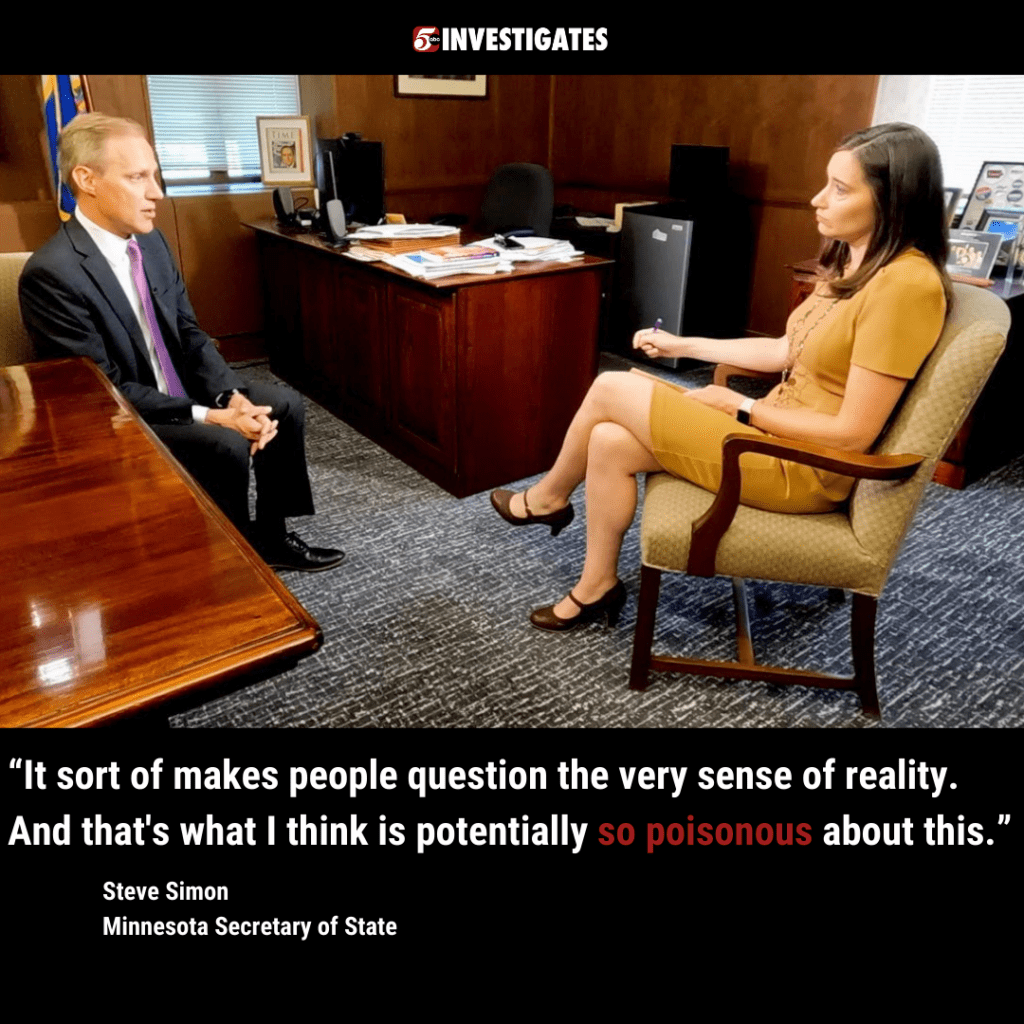Minnesota’s Secretary of State: AI-generated deepfakes potentially ‘poisonous’ for elections
The year Steve Simon was first elected as Minnesota’s Secretary of State, the rideshare company Uber was a brand-new startup and the world was introduced to the Apple Watch.
In his nine years in office, Simon has watched technology change our lives and elections.
But the latest technological advances in artificial intelligence programs are introducing a new dimension to the centuries-old job of election administration.
“It’s such a fast-evolving tool,” Simon said in a recent interview. “None of us were even talking about ChatGPT a year ago.”
Election officials around the country, including Simon, are increasingly worried that people will use the technology to spread false information about candidates and the voting process.
Despite new laws intended to crack down on technology-driven disinformation, it will likely increase in the lead-up to the 2024 presidential election.
“It certainly has been a sobering thing to think about,” Simon said.
‘Deepfakes’ and elections
One of Simon’s main concerns is the proliferation of deepfakes.
The AI-generated images or videos can depict events that never happened or show people saying things they never said.
Simon said even the most discerning consumers of media often struggle to identify what’s real and what’s fake.
“It sort of makes people question the very sense of reality. And that’s what I think is potentially so poisonous about this,” he said.
Deepfakes are already being used by political candidates, prompting the Federal Election Commission to consider regulating political ads that use AI-generated material.

While disinformation about candidates is a concern, Simon is also worried that people will use AI to put out wrong information about the voting process using Simon or other trusted election officials.
“If some AI source basically hijacked my words, or created words that I didn’t say, our office has to be very quickly on the heels of that dishonesty, ready to rebut that and to denounce that and to set the record straight,” he said.
New law
In Minnesota, Simon’s office is getting help to stop potential election interference.
In May, Governor Tim Walz signed a bill into law that makes it a crime for a person to knowingly disseminate a deepfake that’s intended to influence an election within 90 days of an election.
The bill’s sponsor, Rep. Zack Stephenson (DFL-Coon Rapid), told lawmakers in February the bill is modeled off a law passed in California in 2019.
While grateful to the legislature for acting, Simon acknowledges there are challenges to enforcing it.
“I think it’s a really strong law as far as it goes. But I think the problem with so many of the deep fakes is they’re not easily traceable,” he said.
The Secretary of State’s office is not an investigative agency, Simon explained, but said that staff would work with law enforcement partners, like the Minnesota Bureau of Criminal Apprehension (BCA), to go after people who violate the law.
But when asked what kind of resources are dedicated to these investigations, a spokesperson for the BCA told 5 INVESTIGATES the agency “is not specifically assigned to work cases” but instead assists local law enforcement when asked.
The law, which went into effect August 1, will get its first test ahead of the upcoming municipal and school board elections in November. The BCA spokesperson said there haven’t been any requests for investigative assistance related to this statute to date.